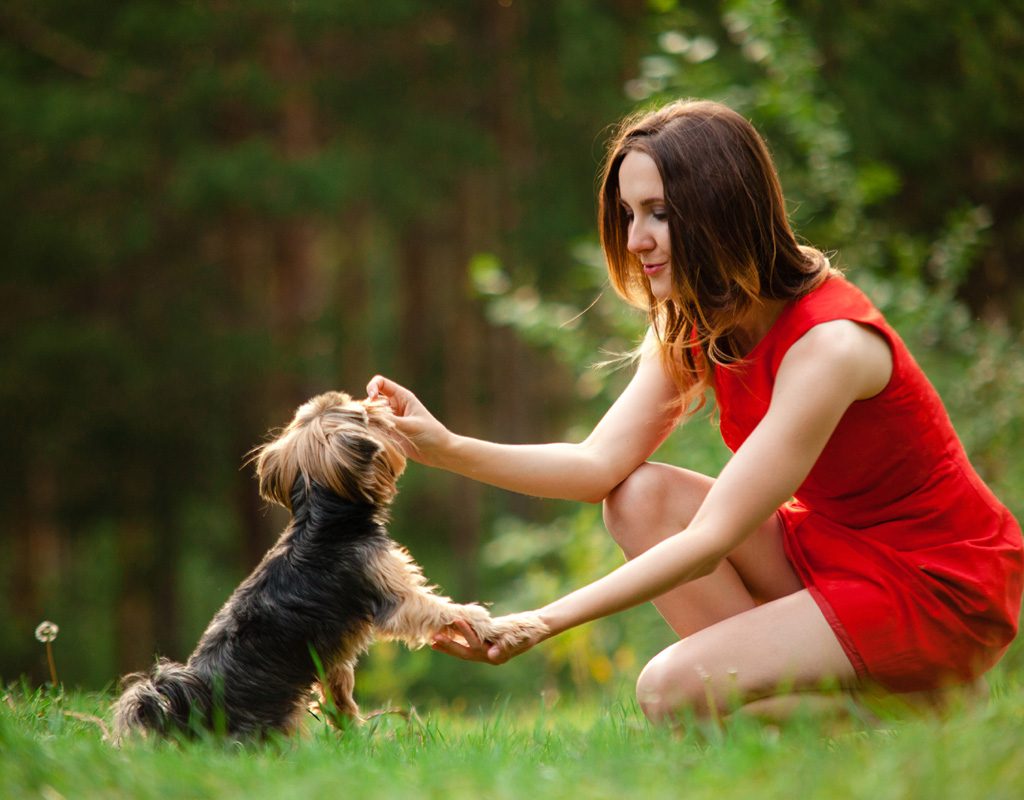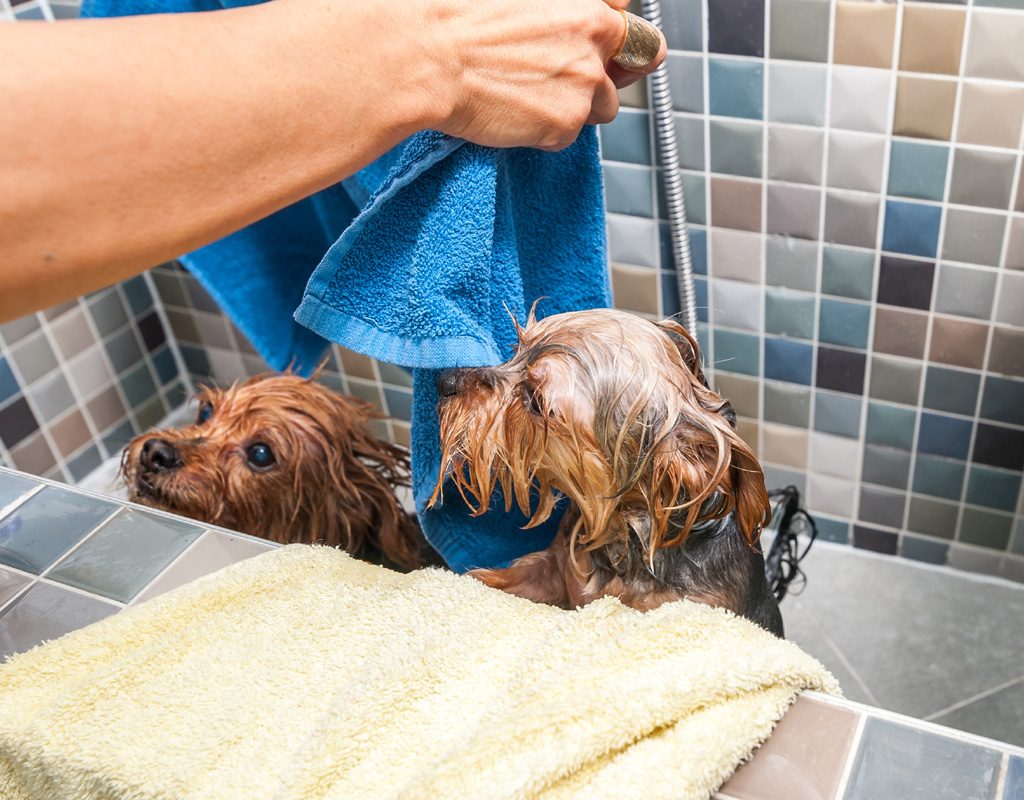Developing a regular grooming habit for your Yorkshire terrier (Yorkie) is not just about making him look good. Grooming provides important health benefits along with keeping your little friend comfortable. When you’re grooming your dog, you’re not only keeping his coat, skin, feet, ears, and teeth healthy, you’re also getting to know his body, which helps you catch any problems early on.
Yorkies have different coat types
The American Kennel Club (AKC) describes the show-quality Yorkie as a compact terrier of no more than 7 pounds whose “crowning glory is a floor-length, silky coat of steel blue and a rich golden tan.” According to breed experts at the Yorkshire Terrier Club of America (YTCA), not all terriers inherit this “correct coat.” Pet Yorkies come in a range of colors, and their coats can be silky, wavy, or woolly. The silky coats grow long and straight, while the wavy or woolly coats don’t grow as quickly or as long. Most owners opt to keep their Yorkies’ coats trimmed short, with the most popular looks being the puppy cut and the teddy bear cut. While clipping is best left in the hands of a professional, it’s up to owners to keep up a regular maintenance grooming routine between visits.
Common mistakes people make when grooming Yorkies at home
1. Not training the dog at a young age to accept grooming
Since coat grooming is an essential part of basic care for Yorkies, training experts at the American Society for the Prevention of Cruelty to Animals (ASPCA) say that the earlier you get your terrier comfortable with being brushed, the better. And remember, a good grooming routine includes bathing, nail trimming, and cleaning the ears, eyes, and teeth. You can prepare your dog for these grooming sessions by getting him used to being handled as a puppy. Positive-motivation training helps with this. Keep sessions short and use lots of praise and treats to reward your dog for allowing you to brush his coat and to touch his paws, ears, and mouth.

2. Not brushing the coat every day
Because a Yorkie’s hair is similar to human hair, it can easily become matted. A “good brushing every day will keep tangles away,” say experts at the YTCA. Here are some tips for brushing your Yorkie:
- Spray his coat with water or conditioner before you begin brushing to help the brush run freely through the strands. The hair should be damp but not saturated.
- Use a good pin brush with a rubber back, as natural bristle brushes can break your Yorkie’s fine hair.
- Pay special attention to the groin, armpits, and around the neck, as these are the most likely places for the hair to get tangled. Any mats should be gently pulled out with your fingers first and then with a wide-toothed grooming comb. A little detangling solution can help with this process.
- You may need to trim the hair around your Yorkie’s face to prevent eye irritation between trips to the groomer. Some owners opt to use bows or elastic hair bands to pull the hair away from their dog’s face.
3. Not giving regular baths
Breeders at the YTCA recommend bathing your toy-sized terrier once every week or two, with some dogs needing a bath more than others. Since frequent bathing can dry the skin, grooming experts at the ASPCA recommend using a prescription shampoo that won’t strip away moisture. You should also use a good conditioner to help soften and bring out the natural luster of your Yorkie’s coat. Following are some tips for bathing your terrier:
- It’s extremely important to brush your terrier’s coat to remove any tangles before bathing him.
- Make sure to rinse the coat thoroughly after shampooing. Use a small sponge to rinse the face and avoid getting water into the nose and mouth.
- Check the hair around your dog’s anus as it can become matted with feces. Grooming experts recommend clipping the hair right around the edge of the anus if needed between professional grooming visits to prevent your dog from having problems when pooping.

4. Not brushing the teeth regularly
Yorkies, like many other small breeds, are at a higher risk of developing periodontal disease. According to the American Veterinary Dental College, periodontal disease is an infection that can cause the loss of teeth and jawbone. The infection can also spread throughout the body, damaging vital organs such as the heart, liver, and kidneys. To help keep your Yorkie’s mouth healthy, veterinary experts recommend annual professional cleanings. In addition, you should clean your dog’s teeth and gums every day or at the very least a few times a week. The American Veterinary Medical Association provides a video demonstrating the correct way to clean your dog’s teeth.
Establishing a good grooming routine is so important for the well-being of your Yorkie and will help him live a long, healthy, and happy life. It also makes you take time out of your busy schedule to focus on your pup and provides a wonderful bonding opportunity for you both.




